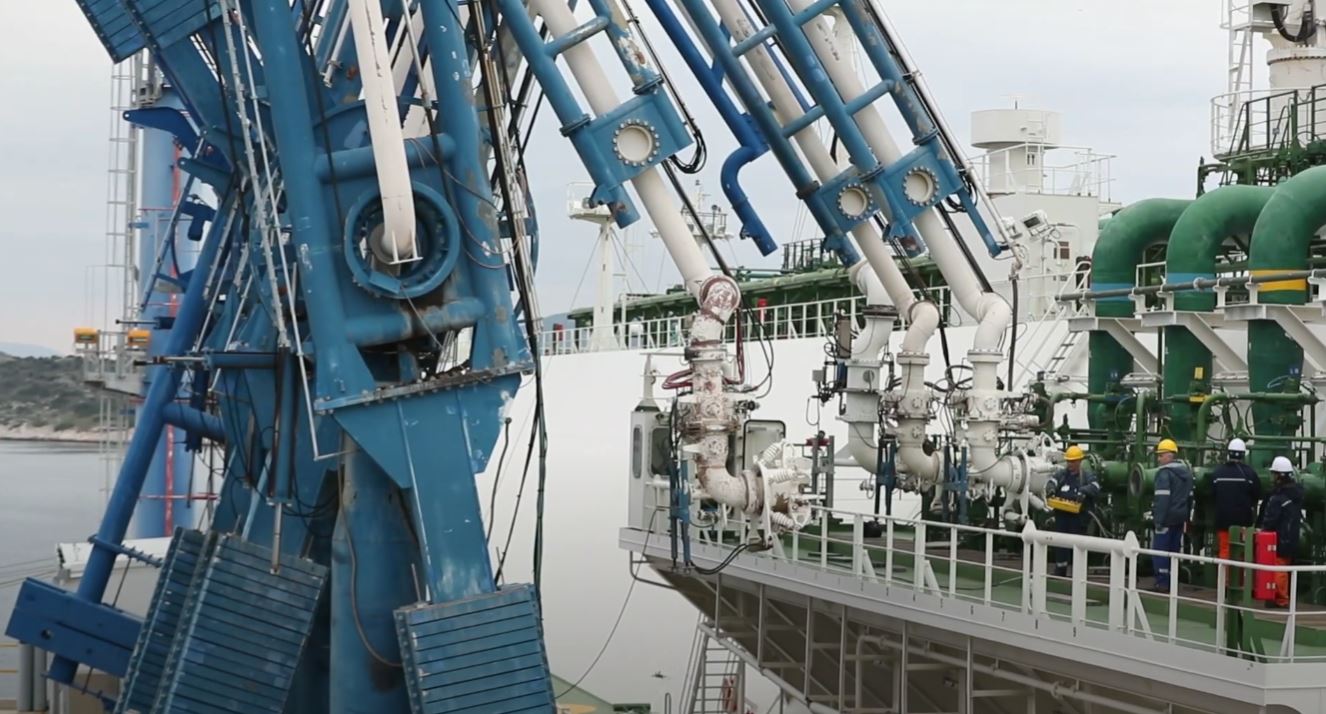Liquefied natural gas (LNG) deliveries to Greece’s Revithoussa terminal decreased by 48.2 percent in the first half of this year, with the US supplying most of the volumes, according to DESFA.
The LNG shipments in the January-June period totaled 8.96 terawatt hours, or 12 tankers, the Greek gas grid and LNG terminal operator said.
This compares to 17.63 TWh, or 26 tankers, in the same period in 2023.
Greek LNG imports totaled 6.93 TWh, or 9 tankers, in the first quarter of this year. This means that the Revithoussa facility received just 2.03 TWh, or 3 tankers, during the second quarter.
Besides LNG imports, DESFA said that since the start of the Revithoussa LNG truck loading service in November 2023, 104 LNG trucks have been loaded, transferring 4,675 cbm of LNG, or 30,139 MWh of equivalent energy.
The truck loading facility offers a flexible solution for transporting LNG to off-grid areas and users by road, DESFA noted.
US, Russian volumes down
The US remained the largest LNG supplier to Greece in the first half of this year.
About 67.9 percent of the LNG volumes came from the US, reaching 6.09 TWh, a drop of 14.9 percent compared to the first half last year.
Russia ranked second with 1.91 TWh, a decrease of 39.7 percent compared to the last year.
Besides the US and Russia, Algeria and Norway each supplied 0.48 TWh to Greece during the period. Algerian volumes decreased 80.6 percent compared to the last year, while Norwegian volumes dropped 50.6 percent year-on-year.

DESFA said that 29.7 percent of all imported gas to Greece in the first half, including pipeline gas, came via the Revithoussa terminal.
Total gas imports to Greece amounted to 30.93 TWh, a drop of 8.14 percent from the first half of 2023.
The largest quantities entered through the Sidirokastro entry point (15.7 TWh), covering 50.76 percent of imports, while the entry point of Nea Mesimvria, through the TAP pipeline, covered 19.52 percent (6.03 TWh), it said.
DESFA said domestic natural gas consumption in Greece has recorded an increase of 29.7 percent to 30.7 TWh during the period under review.
However, total natural gas demand decreased by 7.14 percent to 32.22 TWh due to the decrease in exports, it said.
DESFA said in the first quarter report that exports decreased due to Bulgaria’s increasing gas imports from Turkey.
Alexandroupolis FSRU
LNG imports to Greece are expected to rise due to the launch of Gastrade’s FSRU-based LNG import terminal off Alexandroupolis.
This is the first FSRU-based LNG facility in Greece and the second LNG import terminal.
DESFA is also a shareholder in this facility along founder Copelouzou, DEPA, Bulgartransgaz, and GasLog.
The 2018-built 174,000-cbm LNG carrier, GasLog Hong Kong, delivered on February 18 the commissioning cargo from the US to the 153,600-cbm Alexandroupolis.
This LNG carrier, chartered by France’s TotalEnergies, brought the shipment from Sempra’s Cameron LNG plant in Louisiana, while Gastrade’s shareholder DEPA sold some of these commissioning volumes to Moldova’s state-owned energy firm Energocom.
However, the commercial launch of the FSRU-based facility has been delayed.
Gastrade recently told LNG Prime it expects to launch commercial operations at its LNG facility in October this year following an issue with the project’s pipeline.
“The new COD (commercial operation date) has now been anticipated for October 1, 2024, to coincide with the start of the next gas year,” a Gastrade spokeswoman said.
“The issue that was identified during commissioning in the pipeline system of the project, is under rectification,” she said.
“Should the issue be resolved earlier, the company will update its customers accordingly and announce an earlier COD,” the spokeswoman added.

